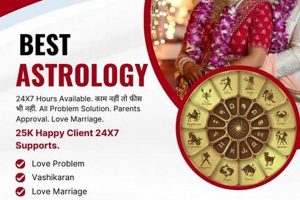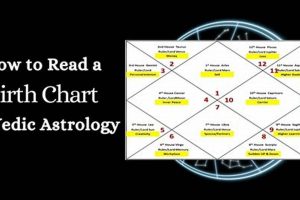Software applications designed for Vedic astrological calculations offer a range of functionalities, from generating birth charts (kundalis) and calculating planetary positions (grahas) to predicting auspicious timings (muhurtas) and analyzing compatibility (synastry). These digital tools often incorporate vast databases of astronomical data and interpretative texts, enabling both novice enthusiasts and experienced practitioners to explore this ancient system. For example, such software might calculate the dasha periods, which are planetary cycles believed to influence different life phases.
This digital approach to Jyotish offers significant advantages. It automates complex calculations, reducing human error and saving considerable time. Furthermore, many programs provide interpretative modules, offering insights into the astrological significance of planetary placements and transits. Rooted in ancient Vedic traditions, this practice seeks to understand celestial influences on human lives, providing guidance on various aspects, from career and relationships to health and spiritual development. Its digitization makes this intricate system more accessible, facilitating deeper exploration and understanding.
The following sections will delve deeper into specific aspects of this digital adaptation, exploring functionalities, available software options, and practical applications for both personal use and professional astrological practice.
Tips for Utilizing Vedic Astrology Software
Effective use of Vedic astrology software requires understanding its capabilities and limitations. These tips offer guidance for maximizing the benefits of these digital tools.
Tip 1: Verify Accuracy of Birth Data: Precise birth data (date, time, and location) is crucial. Even slight variations can significantly impact astrological calculations. Confirm data accuracy with birth certificates or official records before entering it into the software.
Tip 2: Understand the Basics of Vedic Astrology: While software automates calculations, a foundational understanding of Vedic astrological principles enhances interpretation. Learn about the zodiac signs (rashis), planets (grahas), houses (bhavas), and their significations.
Tip 3: Explore Different Software Options: Numerous Vedic astrology programs are available, each with its own strengths and features. Explore various options, considering factors such as user interface, available modules, and support resources, to find the best fit.
Tip 4: Cross-Reference Interpretations: Software interpretations should be considered alongside traditional texts and consultations with experienced astrologers. Treat software outputs as valuable tools, but not definitive pronouncements.
Tip 5: Focus on Self-Development, Not Prediction: Utilize these tools for self-awareness and personal growth. Instead of fixating on predicting specific events, focus on understanding karmic patterns and potential challenges to make informed decisions.
Tip 6: Respect the Ethical Implications: Astrological insights should be used responsibly and ethically. Avoid using software to make decisions for others or to promote fear or anxiety.
Tip 7: Stay Updated: Software and astrological knowledge continually evolve. Keep software up-to-date and continue learning to deepen understanding and ensure accurate interpretations.
By following these guidelines, individuals can leverage Vedic astrology software effectively for self-discovery and informed decision-making. These tools empower users to access and interpret complex astrological data, fostering a deeper understanding of this ancient system.
The concluding section will summarize the key advantages of using Vedic astrology software and its potential to enhance one’s understanding of this time-honored practice.
1. Accuracy of Calculations
Precision in astrological calculations is paramount in Vedic astrology software. The efficacy of any program hinges on its ability to deliver accurate planetary positions, house cusps, and other astrological data points. Inaccurate calculations can lead to misinterpretations and flawed predictions, undermining the very purpose of the software.
- Planetary Positions:
Precise planetary longitudes are fundamental. Even minor discrepancies can significantly alter astrological interpretations. Accurate ephemerides, accounting for precession and other astronomical phenomena, are essential for reliable results. For instance, a slight error in planetary longitude can result in an incorrect placement in a house or sign, leading to an erroneous assessment of its influence.
- House Systems:
Vedic astrology utilizes various house systems, each with its own calculation method. Software must accurately implement the selected house system to ensure the correct placement of planets within the chart. Using an incorrect house system can lead to a misrepresentation of planetary influences in specific areas of life. For example, a planet placed in the 10th house of career in one system might fall into the 11th house of gains in another, resulting in a different interpretation.
- Time Zones and Birth Locations:
Accurate birth time and location data are crucial. Software must correctly adjust for time zones and geographical coordinates to generate accurate charts. Errors in these inputs can lead to incorrect ascendant and planetary placements, thereby affecting the overall analysis. A birth time recorded in local time must be accurately converted to Greenwich Mean Time (GMT) for precise calculations.
- Panchanga Elements:
Beyond planetary positions, accurate calculation of other panchanga elements like tithi, nakshatra, yoga, and karana is essential. These elements provide further nuances in Vedic astrological analysis. Errors in their calculation can obscure significant astrological combinations and influences. For instance, an incorrect tithi can impact muhurta calculations, leading to the selection of an inauspicious time for an important event.
Ultimately, the reliability of a Vedic astrology program rests on the accuracy of its calculations. These calculations form the basis of all subsequent interpretations and predictions. By prioritizing accuracy, these programs empower users to gain deeper insights into the intricacies of Vedic astrology and its application in their lives. Choosing software known for its precise calculations is therefore crucial for anyone seeking to utilize Vedic astrology for self-understanding or professional practice.
2. User-Friendly Interface
A user-friendly interface is crucial for effective interaction with Vedic astrology programs. Navigating complex astrological data and functionalities can be daunting, especially for newcomers. An intuitive interface simplifies this process, enabling users to access and interpret information efficiently. Clear visual representation of charts, easy data entry, and readily accessible features contribute to a positive user experience. For example, a well-designed interface might offer customizable chart displays, allowing users to focus on specific aspects relevant to their analysis, or provide tooltips explaining technical terms within the program itself. This accessibility empowers users to engage with the software and explore Vedic astrology’s intricacies without being hindered by technical complexities.
Effective interface design considers the user’s needs and workflows. Streamlined navigation, logical organization of features, and clear labeling contribute to a seamless experience. Interactive elements, such as clickable charts and customizable reports, further enhance usability. Consider the contrast between a program requiring manual input of complex planetary data versus one automatically calculating this information based on birth details. The latter simplifies the process significantly, making it more accessible to a wider audience. Similarly, a program offering a variety of report formats caters to diverse user needs, whether it’s a concise summary for personal use or a detailed analysis for professional consultation. Such user-centric design choices bridge the gap between complex astrological calculations and practical application, making the software a valuable tool for both beginners and experienced practitioners.
A well-designed interface fosters deeper engagement with Vedic astrology. By simplifying complex tasks and presenting information clearly, it encourages exploration and learning. This accessibility expands the potential user base, making Vedic astrological insights available to a broader audience. Furthermore, a user-friendly experience contributes to greater user satisfaction and encourages continued use of the program, fostering a deeper understanding and appreciation of Vedic astrology. However, finding the right balance between simplicity and comprehensive functionality can be a challenge. Oversimplification may limit the software’s capabilities, while excessive complexity can overwhelm users. Therefore, developers must carefully consider user needs and strive for an interface that balances ease of use with powerful functionality.
3. Comprehensive Features
Comprehensive features within a Vedic astrology program directly impact its utility and effectiveness. The depth and breadth of functionalities determine the program’s capacity to cater to diverse astrological needs, ranging from basic chart generation to advanced predictive techniques. A program limited to basic natal chart calculations may suffice for casual exploration, but serious students and professional practitioners require broader capabilities. For example, the inclusion of divisional charts (varga charts) provides nuanced insights into specific life areas like career, relationships, or finances. Similarly, access to various dasha systems allows for a more comprehensive analysis of planetary periods and their influence over time. Without these features, the program’s analytical power remains restricted, potentially hindering a complete understanding of astrological influences.
The availability of features like muhurta (electional astrology) calculations, compatibility analysis (synastry), and remedial measures (upayas) significantly enhances a program’s value. Muhurta calculations aid in selecting auspicious timings for important events, while synastry facilitates relationship analysis. Upaya recommendations offer potential remedies for mitigating negative planetary influences. Consider a program that integrates traditional texts and interpretations alongside its calculations. This provides users with not only the raw astrological data but also contextualized explanations, enhancing their understanding and interpretive abilities. Such comprehensive features transform the program from a simple calculation tool into a multifaceted resource for astrological exploration and application.
Ultimately, the comprehensiveness of a Vedic astrology program determines its utility and suitability for different users. While a basic program may suffice for beginners, advanced users require broader functionalities to delve deeper into astrological analysis. The availability of diverse features allows for a more nuanced understanding of astrological influences, enabling users to gain richer insights and apply this knowledge effectively. However, the inclusion of numerous features must not come at the expense of usability. A well-designed program balances comprehensive functionality with an intuitive interface, ensuring that users can readily access and utilize its capabilities. This balance empowers users to effectively navigate the complexities of Vedic astrology and apply its wisdom for personal growth and informed decision-making.
4. Reliable Interpretations
Reliable interpretations are essential for deriving meaningful insights from Vedic astrology programs. While accurate calculations form the foundation, the interpretative layer bridges the gap between raw astrological data and practical understanding. A program’s interpretative accuracy significantly impacts its effectiveness in guiding users toward self-awareness and informed decision-making. Consider the placement of Mars in a birth chart. Accurate calculation determines its zodiacal position and house placement, but reliable interpretation clarifies the potential influence of this placement on an individual’s temperament, energy levels, and drive. An interpretation lacking nuance might simply label Mars as aggressive, while a more reliable interpretation would consider the sign, house, and aspects to offer a more contextualized understanding of its influence.
The reliability of interpretations hinges on several factors. The program’s underlying algorithms and interpretive logic should be based on sound astrological principles derived from traditional texts and the insights of experienced practitioners. Moreover, the program should account for the multifaceted nature of astrological influences, considering the interplay of various planetary combinations and yogas. For example, the presence of a particular yoga in a chart might modify the expression of a planet, leading to a different outcome than predicted solely based on its individual placement. A reliable interpretation would recognize and incorporate such nuances, providing a more holistic understanding of the chart. In the case of relationship compatibility analysis, a superficial interpretation might focus solely on Moon sign compatibility, while a more reliable approach would consider various factors, including planetary aspects, house overlays, and the strength of individual charts.
Access to reliable interpretations empowers users to unlock the full potential of Vedic astrology software. Accurate interpretations provide clarity and context, allowing individuals to understand the astrological influences shaping their lives. This understanding can foster self-awareness, facilitate informed decision-making, and promote personal growth. However, it is crucial to remember that software interpretations should be viewed as valuable tools, not definitive pronouncements. Consulting with experienced astrologers can provide personalized guidance and further enhance the understanding of complex astrological configurations. Ultimately, the combination of accurate calculations and reliable interpretations transforms Vedic astrology programs into powerful instruments for self-discovery and navigating life’s journey.
5. Customization Options
Customization options within Vedic astrology software significantly enhance user experience and cater to diverse needs and preferences. Adaptability is key, recognizing that astrologers and enthusiasts approach the subject with varying levels of expertise and specific analytical requirements. Customizable features empower users to tailor the software to their individual workflows, enhancing both efficiency and interpretive depth. This flexibility transforms a standardized tool into a personalized resource, maximizing its utility for a broader audience.
- Chart Display Preferences:
Customization of chart appearance allows users to select preferred visual layouts, color schemes, and display elements. Some might prefer a North Indian style chart, while others opt for a South Indian format. The ability to adjust planet glyph sizes, house divisions, and aspect lines enhances visual clarity and aligns with individual preferences. This visual customization is not merely aesthetic; it directly impacts the user’s ability to interpret the chart effectively. A clear, personalized visual representation allows for quicker and more intuitive understanding of planetary placements and relationships.
- Dasha System Selection:
Vedic astrology employs various dasha systems, each offering a different lens through which to analyze planetary periods and their influence on life events. Software offering a choice of dasha systems, such as Vimshottari, Ashtottari, or Yogini, allows users to align their analysis with their preferred system or explore different perspectives on the same chart. For instance, an astrologer specializing in predictive techniques might prioritize the Vimshottari dasha, while another focusing on karmic patterns might prefer the Ashtottari system. This flexibility is crucial for accommodating diverse astrological approaches.
- Report Generation Options:
Customized report generation empowers users to select specific astrological factors to include in their analysis, tailoring reports to their individual needs. Options might include detailed planetary aspect analysis, divisional chart interpretations, or specific predictive techniques. This allows for focused analysis, avoiding information overload and ensuring that the report addresses the specific questions or areas of interest. For example, a client seeking career guidance might require a report focusing on the 10th house and related planetary influences, while another interested in relationship dynamics might require a synastry report emphasizing compatibility factors.
- Preference Settings and Profiles:
Saving customized settings and creating user profiles enhances efficiency and streamlines workflow. This allows users to quickly access their preferred chart displays, dasha systems, and report formats without repeatedly configuring settings. Multiple profiles can accommodate different client needs or research projects, further enhancing the software’s adaptability for professional astrologers. This feature not only saves time but also ensures consistency in analysis across different sessions.
These customizable features transform Vedic astrology programs from static tools into dynamic resources adaptable to individual user preferences and analytical needs. The ability to personalize chart displays, select specific dasha systems, tailor report generation, and save preferred settings enhances both the user experience and the program’s analytical power. This flexibility ultimately empowers users to engage with Vedic astrology more deeply and derive more meaningful insights. The program becomes an extension of the user’s astrological approach, facilitating a more personalized and effective exploration of this complex system.
6. Data security & privacy
Data security and privacy are paramount in the context of Vedic astrology programs. These applications often handle sensitive personal information, including birth details, names, and potentially even consultation notes. Protecting this data from unauthorized access, misuse, or disclosure is crucial for maintaining user trust and upholding ethical practices. Compromised data can not only violate user privacy but also potentially expose individuals to identity theft or other harmful consequences. A security breach involving birth data, for instance, could be exploited for malicious purposes, highlighting the need for robust security measures within these programs. Furthermore, the sensitive nature of astrological consultations necessitates stringent privacy protocols to ensure confidentiality.
Several factors contribute to robust data security within Vedic astrology programs. Encryption of data both in transit and at rest safeguards information from unauthorized access. Secure user authentication protocols, including strong passwords and multi-factor authentication, further restrict access to authorized users only. Regular security audits and vulnerability assessments identify and address potential weaknesses in the system, mitigating risks proactively. Additionally, compliance with relevant data privacy regulations, such as GDPR or CCPA, ensures adherence to legal and ethical standards. A program lacking robust encryption, for example, could expose user data to interception, while weak authentication protocols could allow unauthorized account access. Therefore, developers must prioritize security and privacy considerations throughout the software development lifecycle.
Data security and privacy are not merely technical considerations but integral components of ethical astrological practice. Maintaining user trust requires a demonstrable commitment to protecting sensitive information. Transparent data handling policies, clear communication about data usage, and readily accessible privacy controls empower users and foster trust. Ultimately, prioritizing data security and privacy enhances the credibility and professionalism of Vedic astrology programs, ensuring responsible and ethical use of this ancient system in the digital age. Failure to prioritize these aspects can undermine user confidence and damage the reputation of both the software and the field of Vedic astrology. Therefore, a strong focus on data security and privacy is essential for the sustainable and ethical development and application of Vedic astrology software.
7. Customer Support & Updates
Robust customer support and regular updates are integral to the efficacy and longevity of Vedic astrology programs. These applications, while automating complex calculations and interpretations, require ongoing maintenance and support to address user queries, resolve technical issues, and adapt to evolving user needs. Effective customer support bridges the gap between the software’s functionalities and the user’s ability to harness them effectively. For example, a user encountering difficulties interpreting a specific astrological combination might require assistance from customer support to understand the program’s interpretation or navigate relevant features. Similarly, technical glitches or software bugs necessitate timely resolution through responsive customer support channels. Without adequate support, users may become frustrated, hindering their ability to utilize the software effectively and potentially leading to dissatisfaction.
Regular updates play a crucial role in maintaining the program’s accuracy, relevance, and compatibility with evolving operating systems and technological advancements. Astrological calculations rely on astronomical data, which requires periodic updates to ensure precision. Furthermore, updates may incorporate new features, refine interpretive algorithms, or address user feedback, enhancing the program’s overall functionality and user experience. Consider a program that fails to update its astronomical data. Over time, its calculations might become less precise, leading to inaccuracies in chart generation and interpretations. Similarly, a program lacking compatibility updates might become unusable on newer operating systems, rendering it obsolete. Therefore, regular updates are essential for maintaining the program’s accuracy, functionality, and long-term viability.
Effective customer support and a commitment to regular updates demonstrate a software developer’s commitment to user satisfaction and product quality. These factors contribute significantly to user trust, encouraging continued engagement and positive word-of-mouth referrals. Furthermore, active support channels provide valuable feedback loops, allowing developers to understand user needs and incorporate them into future updates and improvements. This iterative process of feedback and refinement ensures the program remains relevant and valuable to its user base. Ultimately, robust customer support and regular updates are not merely supplementary elements but essential components of a successful Vedic astrology program. They contribute to user satisfaction, maintain the program’s accuracy and relevance, and foster a thriving user community. Neglecting these aspects can undermine the program’s long-term viability and limit its potential to empower users with the insights of Vedic astrology.
Frequently Asked Questions about Vedic Astrology Software
This section addresses common queries regarding Vedic astrology software, aiming to provide clarity and dispel misconceptions.
Question 1: What is the difference between Vedic astrology software and Western astrology software?
Vedic astrology, also known as Jyotish, is based on the sidereal zodiac, which considers the actual positions of constellations. Western astrology uses the tropical zodiac, which is fixed relative to the vernal equinox. This fundamental difference impacts planetary placements and interpretations, necessitating distinct software for each system. Vedic software also often incorporates features like dasha calculations and divisional chart analysis, not typically found in Western astrology software.
Question 2: How accurate are predictions generated by Vedic astrology software?
Software predictions should be viewed as potential tendencies, not deterministic pronouncements. Accuracy depends on the precision of birth data input and the sophistication of the softwares algorithms. Interpretations require astrological knowledge and should ideally be complemented by consultations with experienced practitioners.
Question 3: Can Vedic astrology programs recommend remedial measures (upayas)?
Some programs offer upaya suggestions based on planetary placements and astrological combinations. However, these should be considered general guidance. Consulting with a qualified astrologer is recommended for personalized upaya recommendations tailored to individual circumstances.
Question 4: Is it necessary to learn Vedic astrology to use the software effectively?
While software automates calculations, a basic understanding of Vedic astrological principles enhances interpretation. Familiarity with concepts like rashis, grahas, and bhavas allows users to derive greater meaning from software-generated charts and reports.
Question 5: Are free Vedic astrology programs as reliable as paid versions?
Free programs may offer basic functionalities, but often lack the depth and accuracy of professional-grade software. Paid versions typically provide more comprehensive features, reliable interpretations, and dedicated customer support.
Question 6: How can one ensure the privacy and security of personal data when using Vedic astrology programs?
Choose software from reputable developers prioritizing data security. Look for features like data encryption, secure user authentication, and transparent privacy policies. Exercise caution when sharing personal information and ensure the program complies with relevant data protection regulations.
Understanding these key aspects of Vedic astrology software facilitates informed decision-making when selecting and utilizing these digital tools. Focusing on accurate calculations, reliable interpretations, and responsible data handling practices maximizes the software’s potential for astrological exploration and self-understanding.
This concludes the FAQ section. The subsequent section will explore practical applications of Vedic astrology software for both personal and professional use.
Conclusion
This exploration of Vedic astrology software has highlighted its capacity to empower users with readily accessible tools for astrological calculations and interpretations. From generating accurate birth charts to providing insights into planetary periods and compatibility, these digital applications offer significant advantages in terms of efficiency, accuracy, and accessibility. However, the effective utilization of such software requires careful consideration of factors like accuracy of calculations, reliability of interpretations, data security, and the ethical implications of astrological practice. The discussion encompassed the importance of a user-friendly interface, the value of comprehensive features, the necessity of customization options, and the crucial role of robust customer support and regular updates in ensuring a program’s long-term viability and user satisfaction. Ultimately, the responsible and ethical application of Vedic astrology software rests on a balanced approach that combines technological advancements with traditional astrological wisdom.
As technology continues to evolve, Vedic astrology software holds the potential to further democratize access to this ancient system of knowledge, fostering deeper self-awareness and facilitating a more nuanced understanding of the interplay between cosmic influences and human lives. The ongoing development and refinement of these digital tools promise to unlock new possibilities for astrological research, education, and practice, empowering individuals to explore the profound insights of Vedic astrology and apply them meaningfully in their lives. However, it remains crucial to approach these tools with discernment, recognizing that they are aids to understanding, not replacements for critical thinking and ethical considerations. The future of Vedic astrology in the digital age hinges on the responsible development and application of these powerful tools, ensuring that they serve as instruments of empowerment, self-discovery, and ethical astrological practice.







